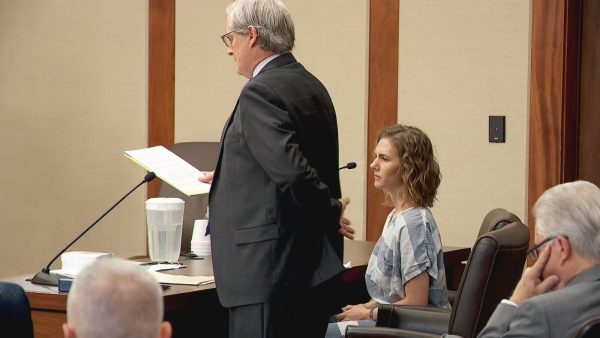
In recent years, family vlogging has become a popular trend on social media platforms like YouTube, where millions of viewers tune in to watch the everyday lives of families. At first glance, these channels often seem harmless, offering an idealized version of family life filled with adventures, laughter, and relatable moments. However, behind the polished videos and staged smiles lies a darker truth. The story of Ruby Franke, once a beloved figure in the world of family vlogging, serves as a poignant reminder of the darker side of this online phenomenon.
Ruby Franke was the matriarch of the YouTube family channel “8 Passengers,” which gained millions of followers due to its portrayal of family life with her husband, Kevin Franke, and their six children. The Franke family built a brand based on the wholesome image of significant family dynamics, daily routines, and various life events that many viewers found relatable and entertaining. The channel started in
 2015 and quickly gained popularity, drawing in a devoted following. Ruby’s portrayal of herself as a loving, responsible mother resonated with many, and her family became a staple in family vlogging. While family vlogging initially attracted favorable attention, Ruby Franke’s channel faced increasing criticism as her parenting style came under fire. In particular, her approach to discipline, which many saw as overly harsh or neglectful, sparked intense debates. Ruby frequently posted videos highlighting her children’s struggles, from scolding them for behavior to putting them in uncomfortable situations for content.
2015 and quickly gained popularity, drawing in a devoted following. Ruby’s portrayal of herself as a loving, responsible mother resonated with many, and her family became a staple in family vlogging. While family vlogging initially attracted favorable attention, Ruby Franke’s channel faced increasing criticism as her parenting style came under fire. In particular, her approach to discipline, which many saw as overly harsh or neglectful, sparked intense debates. Ruby frequently posted videos highlighting her children’s struggles, from scolding them for behavior to putting them in uncomfortable situations for content.
One of the most troubling aspects of Ruby Franke’s legacy is the potential harm inflicted on her children, both mentally and emotionally. Family vloggers often exploit the intimacy of their children’s lives, broadcasting their moments of joy and hardship to an audience they had no say in choosing. In Ruby Franke’s case, her children were made to be the focal point of many videos that put them in uncomfortable or distressing situations. Ruby Franke’s rise to fame exemplifies a broader issue in family vlogging: the lack of ethical guidelines. While some vloggers are transparent about the process, many operate in a gray area where children’s rights and privacy are not always respected. This has led to mounting concerns about exploitation and the monetization of children’s lives. When Jodie moved into their house, she started causing chaos. In the article “Convicted Child Abuser Ruby Franke’s Husband Kevin Takes Ownership of $1.3 Million Utah Home as They Finalize Divorce” by Yahoo Life, Kevin Franke said, “Jodi began to live at our home. It was uncomfortably intimate. Weird things started happening. Ruby said the children were demonically possessed. That was the spark that blew the powder keg.”
As Ruby Franke’s behavior and parenting came under further scrutiny, her once-loyal fan base began to splinter. In 2023, Ruby and her family’s popularity took a significant hit after an incident involving one of her children, which led to widespread media coverage. As a result, many of her followers questioned the authenticity of the content and the ethics behind it. In the aftermath, Ruby Franke faced mounting criticism from fans and former supporters. The negative attention culminated in her returning from the vlogging world, though her legacy remains controversial in the family vlogging sphere. Despite her fall from grace, her channel is a cautionary tale about the dangers of putting family life on display for profit and how quickly an online persona can unravel when the lines between reality and entertainment become too blurred. The legacy of Ruby Franke is a stark reminder of the darker side of family vlogging. It serves as a warning for both parents and audiences about the potential consequences of exploiting children’s lives for the sake of views and income. As family vlogging grows, ethical considerations must be addressed, particularly when respecting children’s privacy and well-being. There is an urgent need for more robust regulations and guidelines within the world of family vlogging, ensuring that children’s rights are protected and that their involvement in videos is based on informed consent. In the New York Times Article Former YouTube Parenting Host to Serve Up to 30 Years
 in Prison for Child Abuse Ruby said, “I was led to believe that this world was an evil place filled with cops who control, hospitals that injure, government agencies that brainwash, church leaders who lie and lust, husbands who refuse to protect and children who need abuse,” As parents continue to share their personal lives online, the lessons from Ruby Franke’s controversial legacy should not be overlooked—especially when it comes to prioritizing the mental and emotional health of children over the pursuit of fame and profit. In the end, while family vlogging can provide a window into the lives of others, it also has the potential to expose the cracks in what we often perceive as perfect. The story of Ruby Franke serves as a potent reminder that behind the camera, the real lives of children are usually much more complicated than what is shown on screen.
in Prison for Child Abuse Ruby said, “I was led to believe that this world was an evil place filled with cops who control, hospitals that injure, government agencies that brainwash, church leaders who lie and lust, husbands who refuse to protect and children who need abuse,” As parents continue to share their personal lives online, the lessons from Ruby Franke’s controversial legacy should not be overlooked—especially when it comes to prioritizing the mental and emotional health of children over the pursuit of fame and profit. In the end, while family vlogging can provide a window into the lives of others, it also has the potential to expose the cracks in what we often perceive as perfect. The story of Ruby Franke serves as a potent reminder that behind the camera, the real lives of children are usually much more complicated than what is shown on screen.







